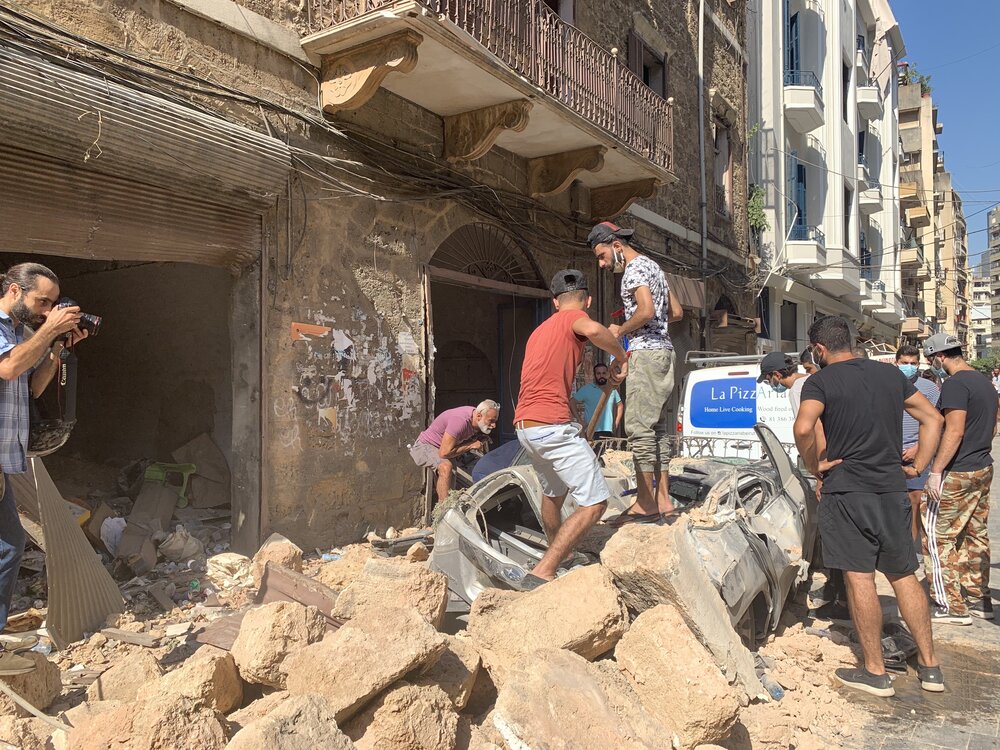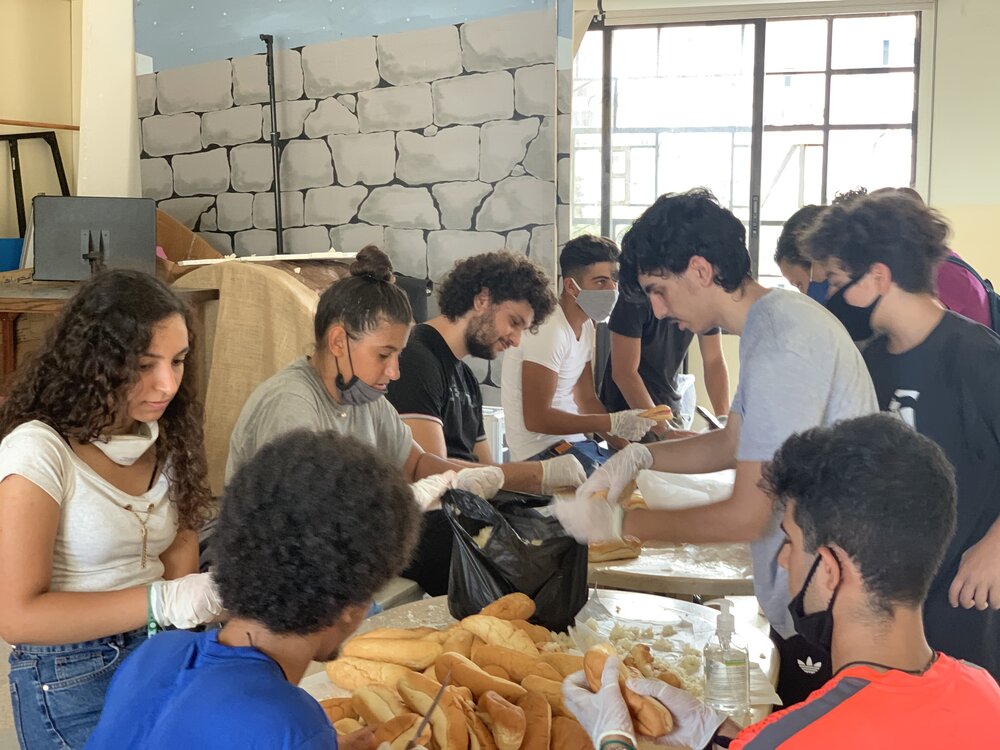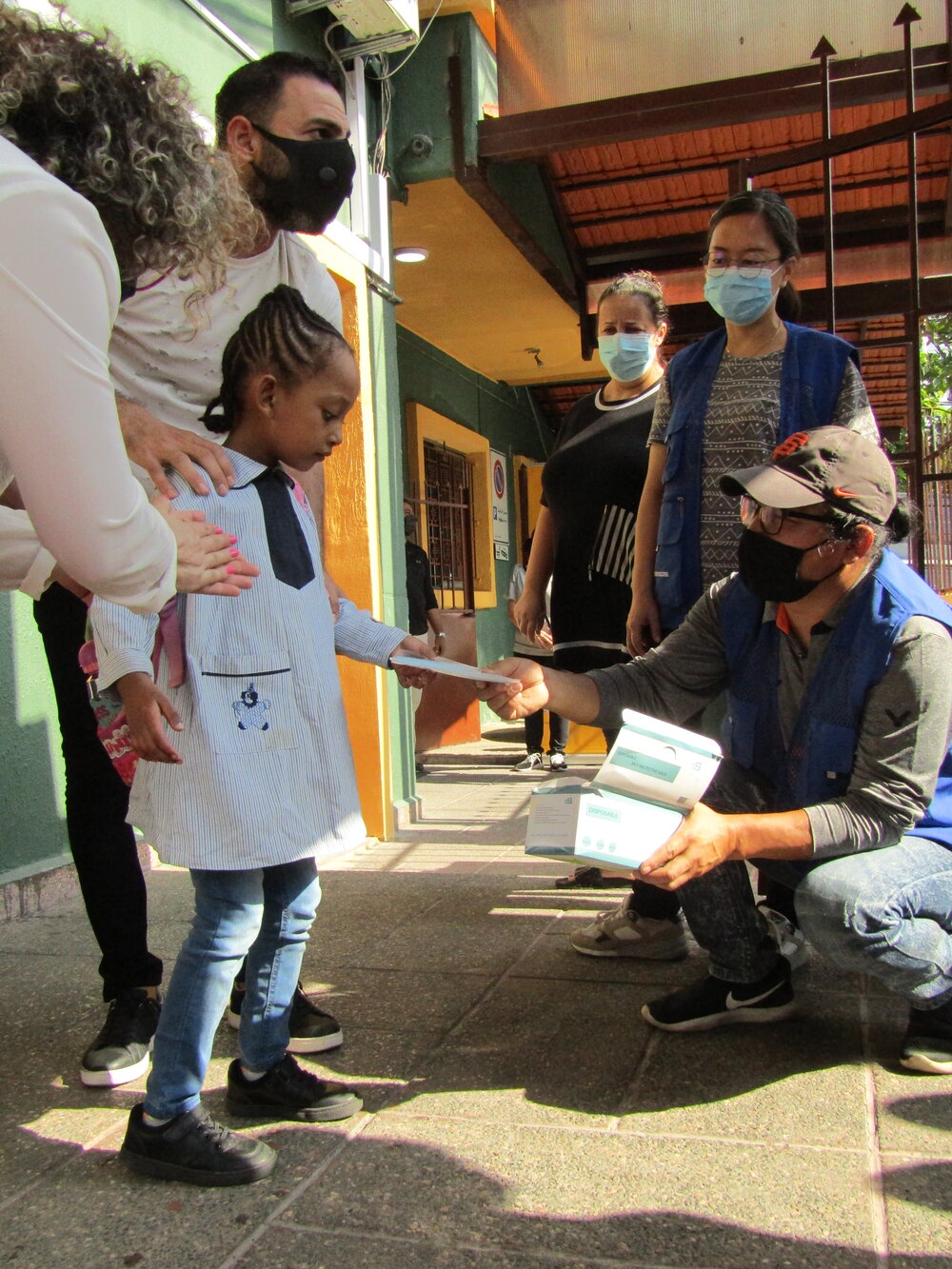“We were already tired, and the blast knocked us down,” says R. Awad, a parent of students at the Nazarene school in Lebanon.
Along with the rest of the globe, Lebanon has been coping with the COVID-19 pandemic and its social and economic fallout. Add to that an ongoing economic crisis and a major explosion, and you have a glimpse into what current conditions are like for people living in and near Lebanon’s capital, Beirut. There, volunteers and staff of a Nazarene church and school are providing vital services, ministering to people in need in the midst of this triple crisis.
After the large explosion at the port in Beirut on August 4, 2020, about 300,000 people were left without a home. Around 50 percent of students at the Nazarene school, which offers a formal Lebanese educational program along with a specialized program for Syrian refugee children, had damage to their homes.
Awad’s children are the second generation to attend the school; she and her siblings were also students there. She likes it not only because the education is very good but also because they treat her children like family. She says that her relatives were surprised that the school even helped repair the family’s home.
The church and school buildings were also affected—glass windows were shattered and the ceiling was destroyed. The very next day, volunteers arrived to begin cleaning up debris, while the church’s pastor, Rev. Andrew Salameh, began organizing a relief plan. Salameh says they began prioritizing the needs: finding shelter for those with damaged homes, distributing food and medication, providing counseling, and maintaining educational programs for students. Then, once they identified the needs, they got to work to meet them.

Donations from Nazarene churches, other faith groups, individuals, and Nazarene Compassionate Ministries combined to support the response to the blast. Beyond repairing the church and school, Nazarene volunteers helped fix at least 170 homes in the community.
Providing food relief has been a cornerstone of the compassionate outreach of the Nazarene church in Beirut, and it’s one that has been especially helpful as prices for food continue to climb due to the economic crisis. Since June 2014, the church has served meals to those who are elderly or experiencing illness, providing three meals a week for about 40 people, distributing the food door to door. And when the pandemic hit, the ministry provided meals up to five times per week to those in need. The church also distributes about 1,000 food packages around the community each month to both Lebanese and Syrians living in Lebanon as refugees—a number that has doubled in the time during the pandemic and after the explosion.

To support mental health and wellbeing in their community after the blast, the church opened the Balassan Counseling and Medical Center. Located minutes away from the church building, the center largely focuses on counseling. The center’s staff includes a psychiatrist, psychologist, medical doctor, physiotherapist, and speech-language pathologist. The school also provides a psychologist for students who works remotely with children when they need support. Many students and their families are still dealing with trauma after the explosion.
“Many times, I needed to talk about my struggles with my kids and [couldn’t] find anyone to talk to,” says Awad, the mother who also attended the school herself. “The school provided the right staff for me.”
Marlene Mshantaf is the principal of the Nazarene school and the NCM coordinator in Lebanon. She explains how teachers continue to care for their students through these ongoing crises, even when in-person instruction was paused for the pandemic.
“They did not stop teaching, not any day,” Mshantaf says.
The donations from all over the world and support of child sponsors have helped to provide for the teachers’ salaries during an uncertain time. The same funds have helped to cover costs for families struggling to pay tuition or afford tablets for online learning. Parents of both refugee and Lebanese students have expressed deep gratitude when they were offered scholarships that allowed them to keep their children in school.
Mshantaf and Salameh are both quick to point out that this Body of Christ made their work possible. Becoming the hands and feet of Christ became a global response.
“You know, really this is the first time that I [knew] how much we are connected as a Body of Christ,” Pastor Salameh says. “We are blessed that the Lord is providing for us all these resources to help people.”

Source: https://www.ncm.org/blog/atriplecrisis
Read the article in the NCM magazine: https://issuu.com/ncm.magazine/docs/2021_issue_1_v8/12



